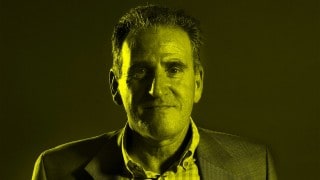David Whitehouse, einer der renommiertesten Wissenschaftsjournalisten Grossbritanniens und ehemaliger science editor von BBC Online, schreibt in der heutigen Ausgabe von CCNet: Dear Benny, In a few weeks the data will be in on the global average temperature for 2008. Although one should always be wary about assumptions regarding data (the December data hasn¹t been measured yet) it does seem highly likely that 2008 will continue the trend seen in recent years (since 2001) of no increase in global temperatures. In most people’s minds the question is how much cooler it will turn out to be than previous years. Personally, I expect the errors will make it unlikely that anything other than a flat line will be justifiable, but I may be wrong.
Given this, the spin regarding these figures has already begun presumably intended to avoid any misinterpretation by so-called climate skeptics and the media. This is what I expect.
In January’s press releases about the data it will no doubt be emphasised that as 2008 was in the top ten or fifteen warmest years since records began it shows that global warming is still taking place. Take a look at the UK Met Office ‘Fact 2’ in their section on their website on climate change myths. It says that despite the static trend the public are not to be confused as global warming is continuing, as the last decade is warmer than the pervious one. Therefore the long-term trend is for rising temperatures. This is a misleading approach to the data ignoring parts of the data that are in some people¹s view problematic (it is the same approach as adopted by the IPCC). True, the last decade is warmer than the previous one, nobody is seriously disputing that, but the important question is has it got any warmer in the past decade. The answer to that direct question is obviously that the data says no, it hasn’t.
But does it matter? Is the fact that the world hasn¹t got any warmer since 1998 and has had an impeccably constant temperature since 2001 of any significance? This period has been called a ‘short interval’ and the lack of change merely ‘year on year variability.’ Frankly, this analysis is wearing thin. It is beginning to strain credibility to ascribe 2008 to yet another example of unchanging ‘year on year variability.’
The recent warming trend began in 1980 and continued to 1998. During that time there was a general temperature increase modified by the Pinatubo and El Chichon volcanic eruptions and the 1998 strong El Nino. Without the 1998 El Nino the increase would not have been so great, shown by the fact that when it subsided the temperature declined and did not continue to increase.
Since 1998 there were two cooler years then a slight increase and since 2001 there has been no increase, the difference between years being much smaller than the error of measurement. Another important point is that since 1998 there has been no volcanic effect. It is the effect of Pinatubo and El Chicon, coupled with a selective choice of time intervals, that can falsely give the impression through the judicious use of ‘trend lines’ that there were periods of standstill and temperature decline between 1980 and 1998 and that therefore the post 2001 standstill is nothing unusual.
It is now obvious that the recent global warming period has two components a rise between 1980 and 1997-8 and a subsequent standstill.
It has been said that this was not unexpected and that nobody ever said there would be an ever increasing rise in temperature even as atmospheric carbon dioxide concentration increased. Ups and down were always part of the picture. Well, just look at the IPCC reports and find where they said that? Until mid 2007 many scientists refused to even countenance the idea that there could possibly be a standstill.
That has now changed. Nobody can ignore this data any more. If nothing else the important paper in Nature earlier this year by Keenlyside et al showed that the change in the data required an explanation which they suggested was due to ocean turnover. Despite this some scientists savagely attacked the Keenlyside paper showing that there is no scientific consensus about global warming data.
One should also raise the important point that if the observed period of global warming was, as is claimed by some, so unusual and strong then why have natural processes been able to counteract it so effectively. I thought the whole point was that man’s effects were greater than that produced by natural processes!
One should also ask why the annual global temperature has remained constant when the CO2 concentration is going ever upward. The effect of increasing CO2, according to the greenhouse hypothesis, is to provide a ‘force’ that drives temperature up. For each year that the temperature remains constant and the CO2 increases the greater is that force. This implies that whatever is keeping the earth at a constant temperature is increasing its effectiveness in step with increasing CO2 and having to produce more and more cooling each year to maintain a constant temperature. This is a highly unphysical and contrived situation.
In climate terms ten years is long enough to get an indication of what is going on and to smooth out any yearly variability. One should not read too much into it but the data is not meaningless and should not be ignored or dismissed as statistical fluctuation. Remember that when James Hansen testified in front of the US Government about the perils of global warming he did so in 1988 with less than a decade of credible warming data to back up his views. If one was generous with an interpretation of his analysis of the available scientific data of the time one would say he was acting in precautionary mode. But what is the difference in terms of science and philosophy from using less than a decade of warming data to say ‘look there might be something going on here’ from looking at a longer period of no increase of global average temperatures and saying ‘look there may be something going on here.’
Also, I wonder if is too much to hope for a more good natured and scientifically informed debate about these figures and not have accusations of lying and spreading disinformation on behalf of big oil and conservative think tanks. This is a cliché, unscientific, inaccurate and increasingly missing the point as more and more reputable scientists ask serious questions about what is going on. To respond to such scientific enquiry with snide innuendo and implied associations is to spread disinformation. Next time someone insists there is no problem with the global warming data and attacks the credibility of those who ask a perfectly reasonable scientific question, ask yourself where their beliefs come from? Perhaps they make a living writing unbalanced books and op eds about the impending catastrophe, or make a living studying it, and therefore have a vested interest. Worse, perhaps they believe that unscientific extremism is justified to get the public’s attention.
The graphs we will see in January about the 2008 data and the 1980 2008 warming period will no doubt have their x-axis squashed so that the past ten years are not easily discernable. The temperature axis will be expansive and one-sigma error bars will be used. If the data were published with two-sigma bars and just for the past 50 years then they would give an entirely different impression.
But don’t worry. It will all pick up in 2009. The UK Met office has said that global warming will begin in earnest in 2009 because by that time greenhouse emissions will overtake natural climate variability!
So that’s the world we live in, spin and disinformation by vested interests who find real world data inconvenient data deniers. The world is warmer than in previous decades but is, for the moment at least, not getting warmer, despite as one scientist from the Tyndall Centre said ‘since 2000 the world has gone ballistic in terms of carbon emissions.’ Global warming is coming, next year, or in a decade or so after understandable global cooling. If temperature increases it is global warming, if it does otherwise it is climate change.
Leave the models to one side for a moment and ponder that the only way to prove the global warming hypothesis is wrong is if the temperatures doesn’t rise as the CO2 does. If that happened what will real world data look like?









